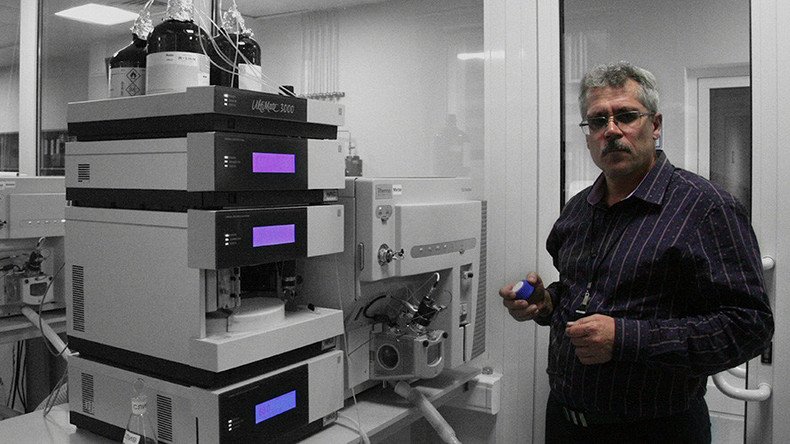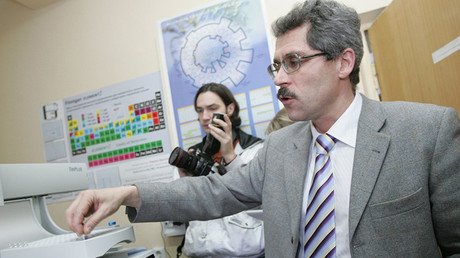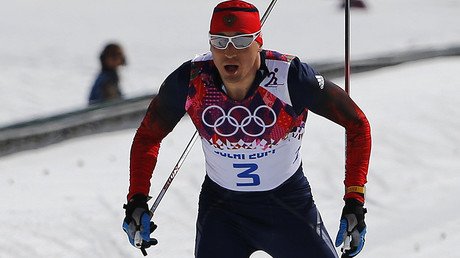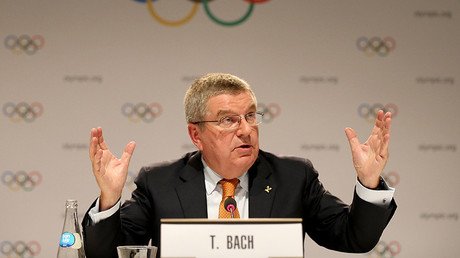‘We intend to demand extradition of Rodchenkov from US’ – Russian Investigative Committee

The Investigative Committee of the Russian Federation intends to demand the extradition from the US of the former head of the Moscow Anti-Doping Laboratory, Grigory Rodchenkov, who fled Russia at the end of 2015 and now faces criminal charges in his homeland.
The latest development follows the news in September, when the Basmanny District Court of Moscow granted an arrest warrant for Rodchenkov on charges of abusing his authority.
“The investigation gathered enough evidence [showing] that Rodchenkov destroyed the doping tests of athletes in violation of the requirements of the International Standard for Laboratories of the World Anti-Doping Agency, as well as the agency's letters regarding the whereabouts of the samples,” the Investigative Committee said in an official statement published on its website.
“With regards to Rodchenkov, a decision has been made to consider him as a defendant, as he is hiding abroad and declared internationally wanted, and the court has chosen a preventive measure in the form of detention. The investigation intends to demand the extradition of Rodchenkov from the United States,” the statement added.
“The arguments of the independent WADA expert (Richard) McLaren about the substitution of positive doping samples of Russian athletes for negative ones at the Winter Olympics in the Sochi Anti-Doping Laboratory and the existence of a certain state doping program in Russia for the athletes to win the champion medals have been refuted.
“The investigators questioned more than 700 athletes, coaches, medical workers of the Russian national teams living throughout the Russian Federation, employees of the All-Russian Sports Federations, the Center for Sports Training of the Russian National Teams, RUSADA and the Anti-Doping Center. But none of them confirmed the existence of a certain doping program. If there were any violations of the anti-doping rules, they were of a purely individual nature,” the statement read.
The Investigative Committee has also identified another person involved in the Rodchenkov case, Marina Dikunets, the former director of the Anti-Doping Center, who has been “repeatedly contacted” by Rodchenkov.
“It was established that Rodchenkov and the former head of the Doping Control Department, Timofey Sobolevsky, who currently (lives) in the United States and collaborated with Professor McLaren, repeatedly called the former Director of the Anti-Doping Center, Marina Dikunets, and offered on behalf of McLaren and WADA, to pass them a database of primary test results of athletes, in an exchange for a monetary reward, refuge in the US or Canada, of a citizenship of one from these countries,” the Investigative Committee’s statement reads further.
As a result, Rodchenkov now also faces charges for attempting to obstruct the investigation.
At the end of 2015, Rodchenkov flew from Russia to the United States, where he repeatedly accused his homeland of doping violations, including during the 2014 Sochi Olympic Games, in which he says he played a key role.
Talking to the New York Times in 2016, Rodchenkov said he personally developed a three-drug cocktail of banned substances which he mixed with liqor and then passed on to Russian athletes during the Games.
Anti-doping tests, developed by Rodchenkov, have been reportedly used by the US Anti-Doping Agency (USADA).
His testimony formed the basis for a WADA-sanctioned report by Canadian lawyer Richard McLaren on the question of doping in Russian sport.
Now, just months before the upcoming 2018 Winter Games in Pyeongchang, South Korea, several calls have been made regarding the participation of the Russian team.
In October, the US Olympic Committee CEO, Scott Blackmun, called for action over allegations of Russian doping, saying “it is beyond frustrating” that no action has been taken since the publication of the McLaren report. “The time for action is now,” he said.
“I believe the IOC is pursuing the findings of the McLaren Report, both in earnest and in good faith, and I believe the IOC when they say there will be consequences for the bad actors. But at some point, justice delayed is justice denied, and we are fast approaching that point,” Blackmun said.
Last week, the IOC handed life bans to two Russian skiers, Alexander Legkov and Evgeniy Belov, on the basis of the evidence provided by the Oswald and Schmid Commission into alleged doping by Russian athletes.
READ MORE: IOC decision over Russian skiers is ‘bewildering & worrying’ – Russian Deputy PM Mutko
The committee banned the athletes from participating in any future Olympics, though it did not specify the kind of doping violations they had allegedly committed. The Olympic governing body also annulled the results that were recorded by the skiers at their home Winter Games in Sochi in 2014, where Legkov won gold in the men’s 50km race and added a silver in the men’s 4x10km relay. Belov was not among the medalists.
However, the IOC president, Thomas Bach, warned last week against premature calls for the disqualification of Russia from the 2018 Pyeongchang Winter Olympics.
He stated that everybody has the right to a “fair and due procedure,” referring to the ongoing Oswald Commission.
“It was very clear, the Olympic Movement considers it unacceptable that some sanctions are being demanded in the public domain,” Bach said, according to the insidethegames.biz website.
The New York Times published an article Monday - 'No Russian Anthem at Olympics? I.O.C. Weighing Possible Penalties,' in which the outlet reported on possible penalties against Russia at the 2018 Olympics, citing “several people with knowledge of the deliberations.”
After the article appeared, RT contacted the IOC for clarification.
“This is all premature speculation before the Oswald and Schmid Commissions have even completed their work and before due process, to which any individual and organization is entitled, has been followed,” reads the official answer from the committee.















